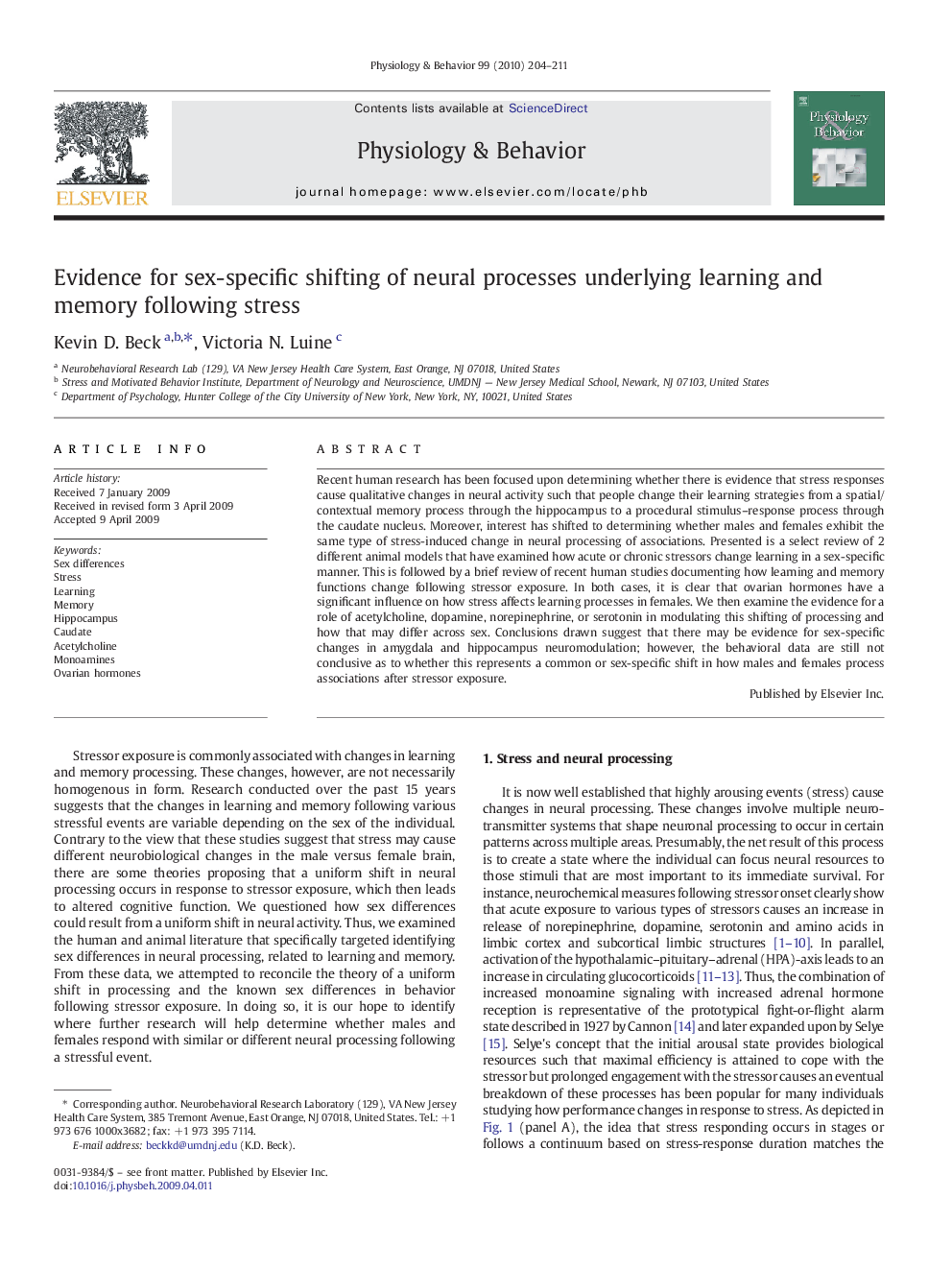| Article ID | Journal | Published Year | Pages | File Type |
|---|---|---|---|---|
| 2845035 | Physiology & Behavior | 2010 | 8 Pages |
Recent human research has been focused upon determining whether there is evidence that stress responses cause qualitative changes in neural activity such that people change their learning strategies from a spatial/contextual memory process through the hippocampus to a procedural stimulus–response process through the caudate nucleus. Moreover, interest has shifted to determining whether males and females exhibit the same type of stress-induced change in neural processing of associations. Presented is a select review of 2 different animal models that have examined how acute or chronic stressors change learning in a sex-specific manner. This is followed by a brief review of recent human studies documenting how learning and memory functions change following stressor exposure. In both cases, it is clear that ovarian hormones have a significant influence on how stress affects learning processes in females. We then examine the evidence for a role of acetylcholine, dopamine, norepinephrine, or serotonin in modulating this shifting of processing and how that may differ across sex. Conclusions drawn suggest that there may be evidence for sex-specific changes in amygdala and hippocampus neuromodulation; however, the behavioral data are still not conclusive as to whether this represents a common or sex-specific shift in how males and females process associations after stressor exposure.
